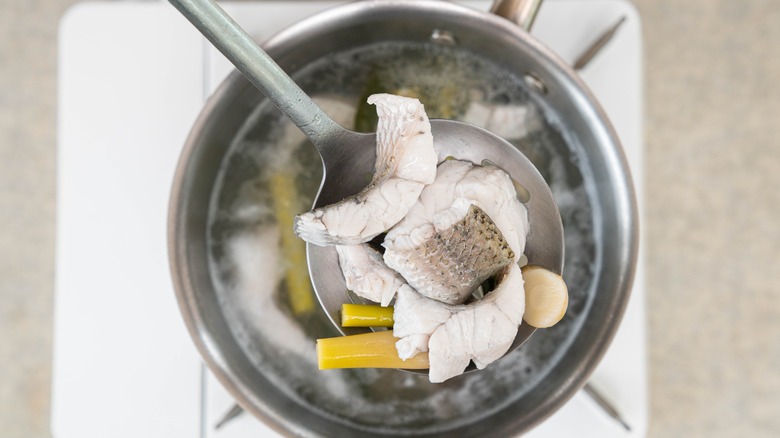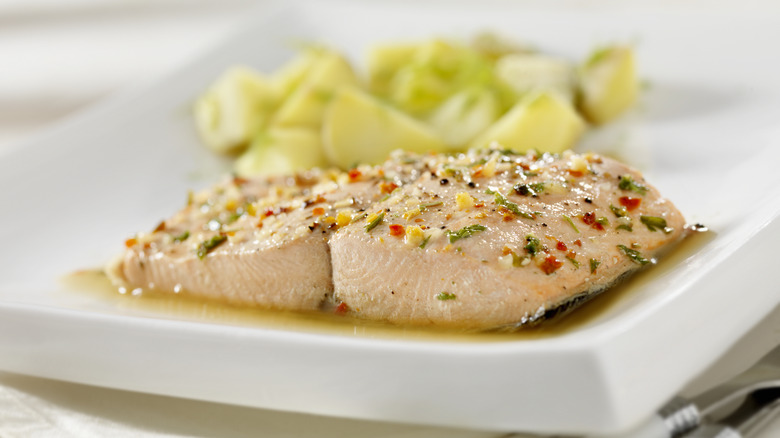To Prevent Poached Fish From Curling, Make Sure The Water Is Cold
When it comes to cooking techniques, poaching — let alone cold water poaching — is considered the ultimate underdog. Yet, if you learn how to successfully poach fish, you can end up with delightfully juicy results. But, you may be asking, if cold poaching is so great, why do so many people stick to hot poaching and frying to cook fish? There are two answers to that. First, fried fish is delicious. Second, cold poaching seems counterintuitive, and many people see a considerable level of success with hot poaching enough to stick with it.
What they may not know, however, is that the curled-up fillets they so often encounter with hot water can be avoided with a cold water poach. All you have to do is place the fish in a cold bouillon, or poaching liquid, before turning the heat up. It works because the low water temperature doesn't shock the fish and toughen it, but rather slowly heats the water so that it cooks the fish gently.
When poached in hot water, the skin on the fish shrinks, pulling the meat along with it and causing the fish to curl up. So, high heat seems unnecessary when poaching fish, and it turns out to be a futile approach. It makes for a less visually appealing result that's outshone by a more composed, cold water-poached fish by the end of the cooking process.
Why fish poached in cold water is superior
But we're not just in it for the looks; poaching fish in cold water also helps to ensure a juicy and tender result. Besides shrinking fish skin, a hot water approach tends to strip away its moisture. Consider that when you drop a piece of chicken breast, for example, into boiling or simmering water, its proteins stiffen up and wring out its moisture, leaving you with dry, rubbery meat.
The same applies to fish, which requires an even lower temperature than chicken to be fully cooked. Surely, if fish is ready at an internal temperature of 145 degrees Fahrenheit, there's no need to expose it to a boiling temperature of 212 degrees Fahrenheit. If you start with cold water and maintain a temperature of approximately 160 to 170 degrees Fahrenheit, you can guarantee yourself the juiciest piece of fish you'd have ever cooked.
And don't worry about cold water taking longer to poach than hot — it takes just about the same time as it takes to steam fish, without the risk of carryover cooking that comes with using high temperatures. Add to cold water poaching the benefits of poaching fish in general: Due to it excluding cooking oils, poaching in water is a low-fat method that yields fewer calories than, say, frying. You can give it a go the next time you poach black bass and remember to cool your stock first before poaching for a perfectly poached fish.

